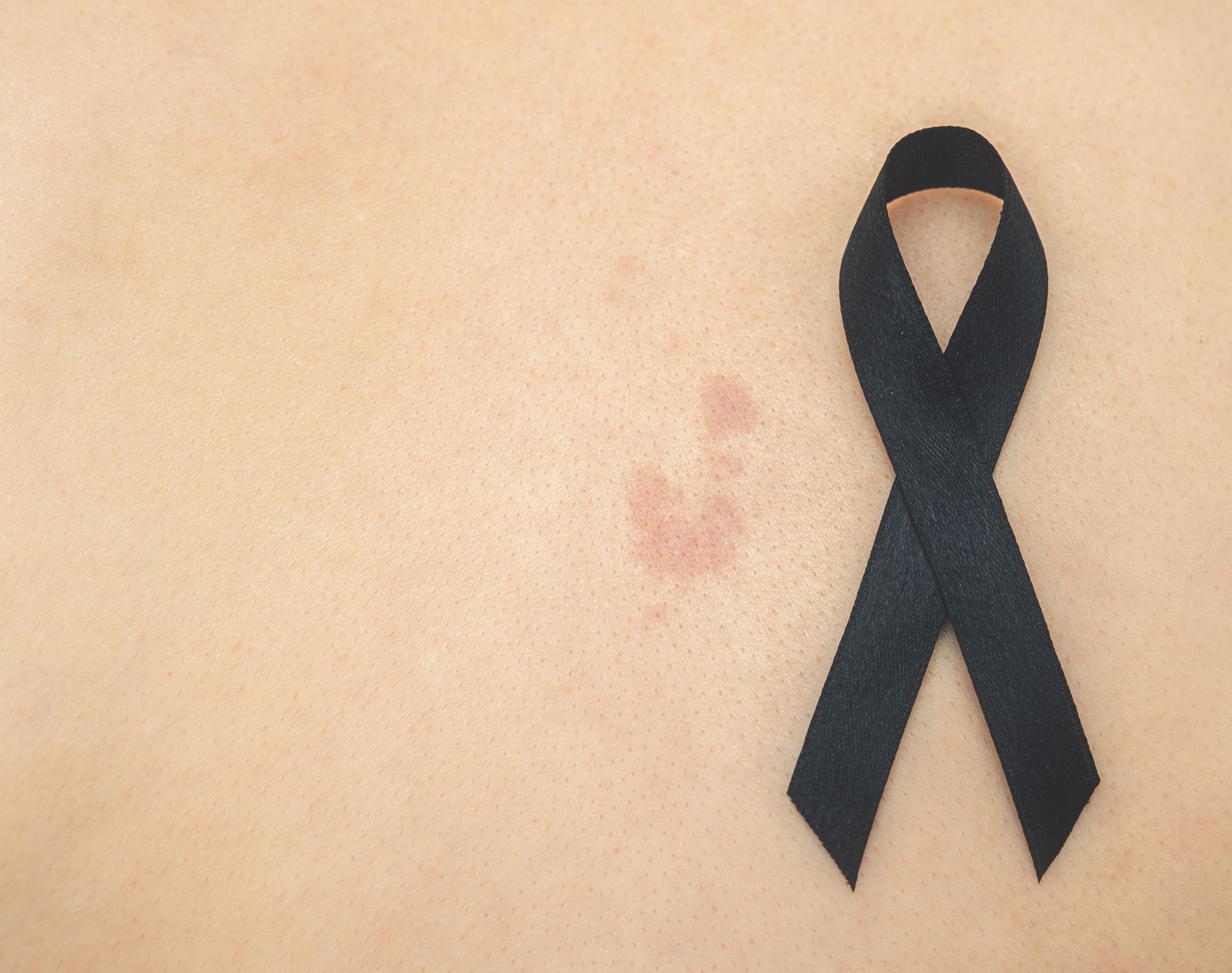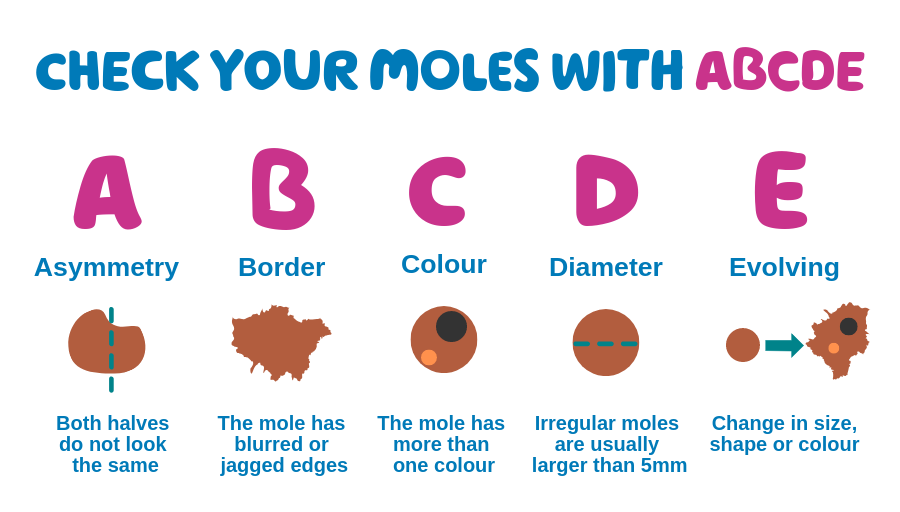The best way to prevent skin cancer is to protect your skin by covering up and being safe in the sun, and to avoid any use of sunbeds or sunlamps.
Here are our top tips for protecting your skin from UV rays:
- Apply a 5-star rated UVA sun protection with at least an SPF 30 every day to areas exposed to the sun, such as your face, neck, arms and legs
- Drink plenty of water to stay hydrated, especially in warmer weather
- Cover up with a hat and long sleeves when you can. Choosing a wide-brimmed hat can offer more protection for your face and neck
- Wear UV-blocking sunglasses to protect your eyes
- Do not use sunbeds or a sunlamp. For a tanned look, choose fake tan lotions or sprays
If you have black or brown skin, your chances of developing skin cancer are lower, but it’s still important to protect your skin from UV rays and regularly check your skin for any changes.
How do I apply sunscreen effectively?
From March and October in the UK, sun damage is most likely to occur between 11am and 3pm. However, sunlight can still be strong enough to cause sunburn at other times of the day and year, and sometimes even on cloudy days, so it’s important to always wear sunscreen.
These helpful tips can help you properly apply your sunscreen and avoid skin damage:
- Make sure your sunscreen is not out of date or past its shelf life once opened
- Always apply your sunscreen to clean and dry skin
- Apply your sunscreen at least 20-30 minutes before you go out into the sun to allow it to soak into your skin
- Make sure you use enough product – the average-sized adult needs at least 6 to 8 teaspoons of lotion to give their whole body the labelled SPF coverage
- Don't forget to apply to easy to miss areas like your lips, eyelids, tops of ears, back of neck, feet, backs of hands and scalp
- Reapply your sunscreen every 2 hours when spending time in the sun, or more often when swimming or exercising outdoors

 Source: Macmillan Cancer Support
Source: Macmillan Cancer Support